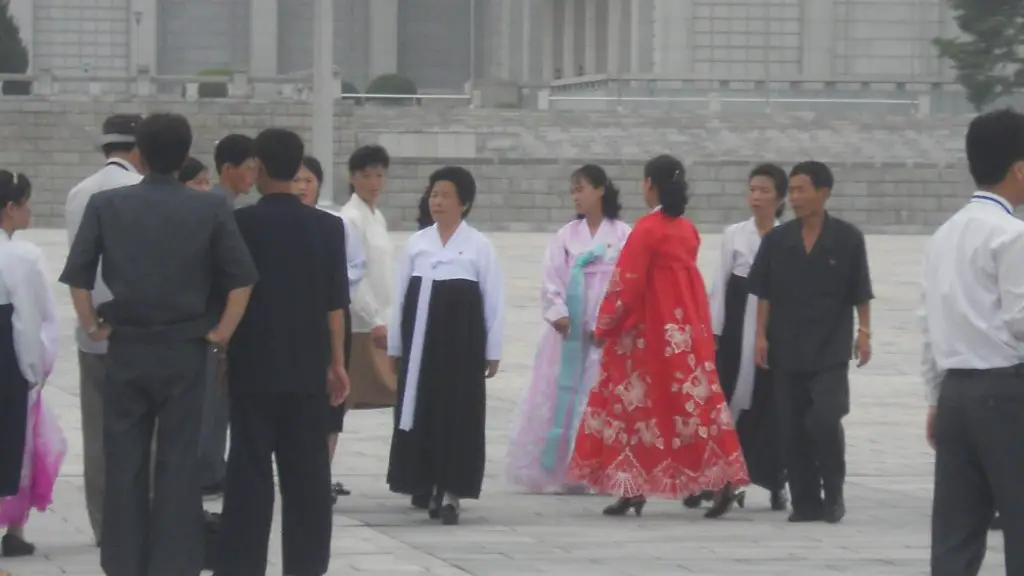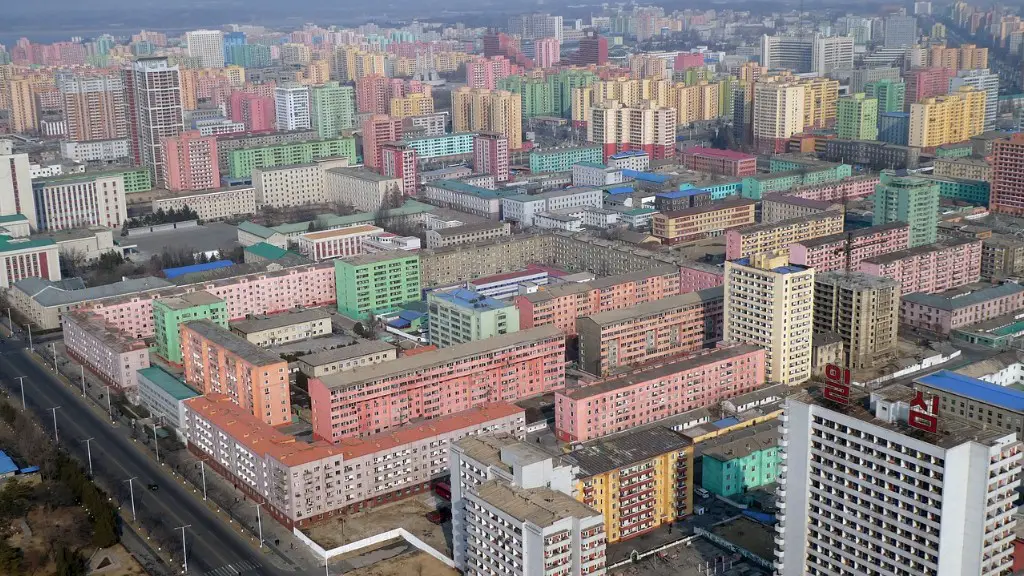Economic Impact
A North Korean attack on South Korea would have enormous economic costs. In addition to the human costs of lives lost, disruption to the lives of millions and the damages of destroyed infrastructure, South Korea would be hit hard economically. The South Korean economy would suffer a downturn in the stock market, increases in the cost of capital and a decrease in investment. Furthermore, foreign investments could be affected, as investors would become reluctant to invest in a country in turmoil. The cost and damage of South Korean businesses and the local economy can be expansive and difficult to calculate.
South Korea also has a large and important export sector, and they are a major exporter of cars, electronics, and other goods and services. If a North Korean attack on South Korea were to occur, the South Korean export industry would be dramatically impacted. In addition, South Korea’s large tourism industry would be greatly affected, as foreign travelers avoiding dangerous regions of the world would be less likely to visit South Korea.
Consequences
Beyond economic costs, a North Korean attack on South Korea would cause severe political and social instability in the region. South Korea would be rocked by fear and uncertainty of what would happen next. It is likely that many South Koreans would become refugees as they fled North Korea’s aggression. This could put a strain on neighbouring countries, as they grapple with hosting a large influx of refugees.
With military action could come the risk of escalation. South Korea might resort to seeking help from other countries, including the United States, to help defend against an attack. This could potentially draw more countries into the conflict, thus exacerbating the problem further.
Reasons of Attack
It is difficult to determine why North Korea would choose to attack South Korea. North Korean leaders have eyes on reunifying the Korean peninsula, but the means of achieving that remain unclear. It is possible that North Korean leaders feel that a more aggressive action is necessary in order to achieve their goals of reunification.
More importantly, it is possible that the North Korean regime is feeling pressure from the international community to abandon its nuclear program, and they may see an attack on South Korea as a way to reassert their presence and power in the region.
Potential Solution to Conflict
If a North Korean attack on South Korea were imminent, there is potential for a diplomatic solution that could prevent the conflict. South Korea and the US have an important alliance, and diplomatic action could potentially be used as an intermediary between the two countries.
The US could play an important role in de-escalating tensions by talking directly with North Korea and putting pressure on North Korea to avoid military action. Through diplomatic negotiations, the US could work with North Korean leaders to create a pathway to reunification that could appease the North and keep the South safe.
South Korean’s Response
In the wake of a potential North Korean attack on South Korea, the South Korean government could take certain steps to protect and prepare for the attack. In order to prevent losses of lives and infrastructure, the South Korean military could be called upon to mobilize, and to increase its vigilance in the region.
The South Korean government could also reach out to other countries for help in the event of an attack. This could involve the US or other countries with an interest in peace in the region, such as China or Japan.
UN Involvement
In the wake of a North Korean attack on South Korea, it is likely that the United Nations would become involved to prevent further escalation. Member states would use their votes to pass certain resolutions that could bring the two countries back to the negotiating table.
The UN could also pass resolution to punish North Korea with sanctions, should their aggression continue. Such consequences would not only prove costly for North Korea, but also send a strong message to the North Korean government that their actions will not be tolerated.
International Consequences
A North Korean attack on South Korea would have immense international consequences. Countries around the world would be affected by the conflict in one way or another, as the prospect of a war in a region of such strategic importance would have the potential to disrupt global trade and cause political instability.
The US, China and Japan would all be affected by such a conflict, as their powers in the region are great. Moreover, these countries would be forced to choose whether to intervene or stay on the sidelines. Depending on their decisions, the economic, political, and security ramifications could be immense.
Media Reaction
The media would also be expected to have a strong reaction and would likely provide intense coverage in the days and weeks following a North Korean attack on South Korea. News would spread rapidly, and the world would be watching closely as tension mounts between the two countries.
The world would wait anxiously for a firm response from South Korea and other countries alike. Social media would become filled with opinions and speculations over what the conflict could mean for the region and the world.
Military Preparedness
In the wake of rising tensions between North Korea and South Korea, South Korea must take steps to ensure that its military is prepared for any potential attack. This includes establishing defensive positions in North Korea, increasing surveillance resources and efforts, and strengthening South Korean military forces through training and equipment.
South Korea’s military could also perform joint exercises such as those with the US and Japan to ensure that they are prepared to respond efficiently and effectively to any potential North Korean attack. South Korea should also look at the lessons learned from past attacks and incorporate those into their current strategy.


